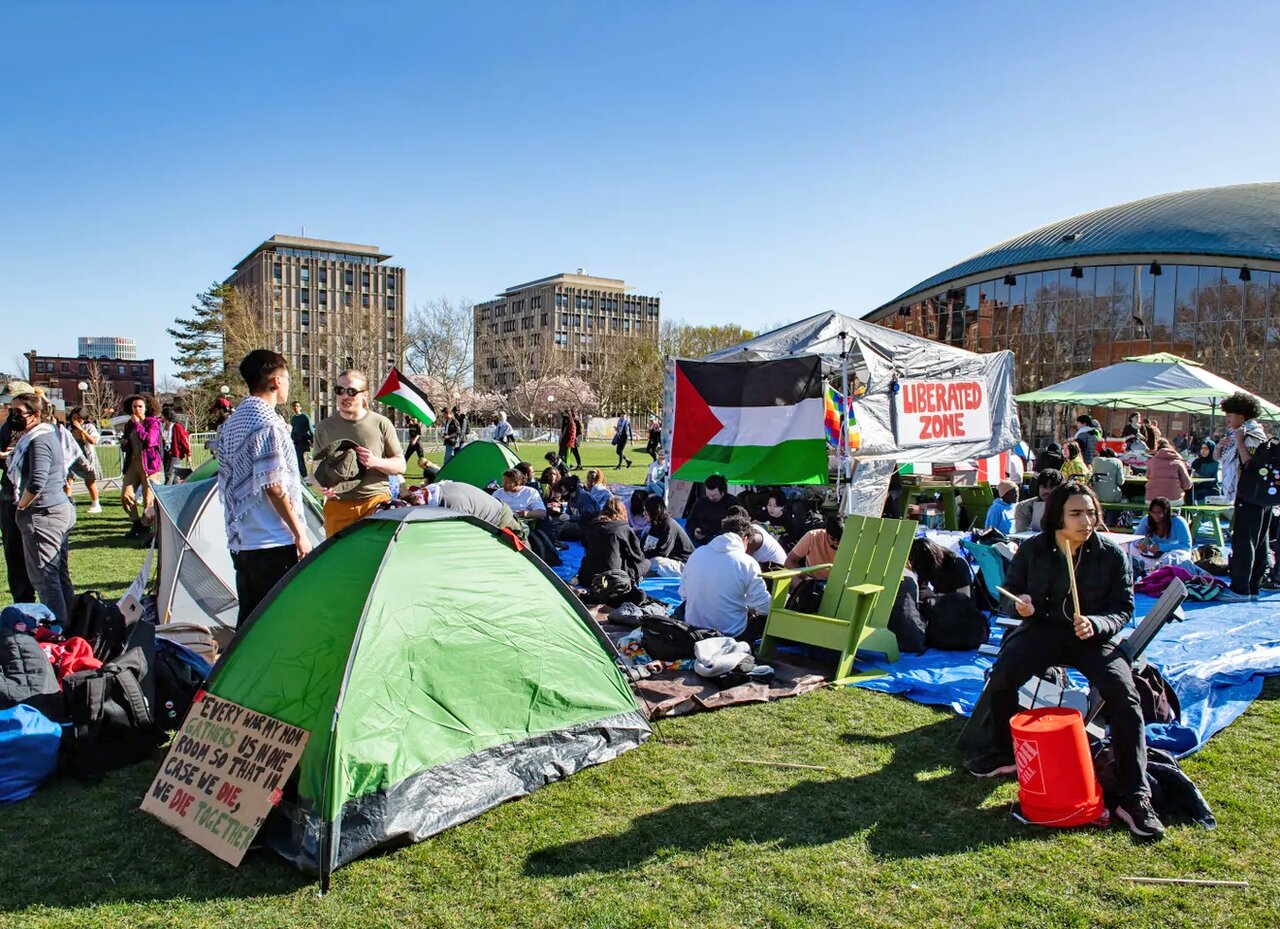‘Horrifying pictures out of Gaza sparked student protests’

TEHRAN- Michael Mann, Distinguished Research Professor of Sociology at UCLA and renowned author of The Sources of Social Power, believes what primarily provoked the student pro-Palestine demonstrations across U.S. universities are the horrifying pictures of Gaza devastation that “have the chilling statistics of death.”
Mann’s insights on the growing wave of pro-Palestine demonstrations are shared in an exclusive interview with the Tehran Times.
With a career dedicated to understanding power dynamics in human societies, Mann examines the motivations behind these protests, the response from university administrators, and the broader political implications of student activism.
He argues that empathy, not antisemitism, is fueling the demonstrations, driven by the harrowing images of destruction in Gaza. Mann also raises concerns over police bias at UCLA protests, the changing perspectives of younger generations on Israel, and the potential long-term effects on U.S. foreign policy.
Here’s the full text of the interview:
What do you believe is the driving force behind the pro-Palestine demonstrations? Do you concur with some American leaders who assert that these protests are rooted in anti-Semitism rather than activism?
The main driving force has been the horrifying pictures of the devastation of Gaza especially the deaths and terrible wounds of women and children, now being worsened by starvation. These images have dominated our television news programs for months, as have the chilling statistics of death. Although criticizing the policies of the state of Israel is always claimed by some Jewish organizations to be antisemitic, this is very rarely true. There is antisemitism in the U.S. today, but it tends to be found on the extreme right of the political spectrum, while these demonstrators are from the political left or center. I should add that at both UCLA and in London where I have witnessed demonstrations, Jewish groups have been among the active demonstrators. Not all Jews support Netanyahu’s policies.
Do you believe the handling of student protests at UCLA and other locations by administrators and authorities has been fair and appropriate?
I can only speak with the authority of the UCLA protests, in which the authorities initially responded calmly to a peaceful encampment occupying one of the main plazas of the university. Then at 11 pm at night, about fifty young men armed with sticks and clubs suddenly appeared and violently attacked the encampment. They were not UCLA students and the leaders had flown from the East Code to organize this attack. During their attack, a large body of police stood by and did nothing. Then, after these thugs had left, the police broke up the encampment with force and arrested a number of students. This certainly seemed like blatant police bias. In general, universities faced with occupations have been very concerned about not alienating large private donors to their universities, and rich Jewish donors have been prominent in applying pressure on them. On the other hand, at UCLA, most professors have been very critical of both the police and the university authorities.
There seems to be a change in how younger generations in the U.S. perceive Israel and its ties with Washington compared to older generations. Surveys indicate that fewer members of Generation Z hold a favorable opinion of Israel. What do you think could be the reasons for this shift?
The main factor I think is that older generations had grown up viewing on their televisions not only Israeli violence, but also violence and wars launched by Arabs against Israel. These were also linked by many to the Holocaust, which has been a great legitimation for the state of Israel. Generation Z has only seen Israeli violence in the West Bank, (except for October 7th) culminating in the horrors of Gaza. But there has also been increasing immigration of Muslims into the US, and immigrants tend to be young.
Do you believe that Washington's unwavering support for Israel and its disregard for domestic dissent could be harmful in the long run?
It's very harmful to Palestinians, obviously. And it will likely increase the appeal of violent tactics to young Palestinians. Hamas or something like it will re-emerge. And that is not good news for Israel. But I am not optimistic that Washington will change.
Do you anticipate that U.S. students will eventually succeed in achieving divestment from Israel at their universities? Could this influence Washington's foreign policy in the long run as well?
Some will, some won’t. But it will have very little effect on US foreign policy. I can’t be optimistic about this whole problem.
